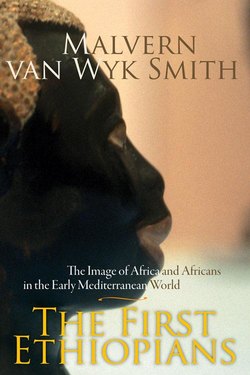The First Ethiopians

Реклама. ООО «ЛитРес», ИНН: 7719571260.
Оглавление
Malvern van Wyk Smith. The First Ethiopians
Отрывок из книги
THE FIRST ETHIOPIANS
The Image of Africa and Africans in the Early Mediterranean World
.....
To me it became ever clearer that at the heart of this impasse or ‘crisis of representation’ (Adam and Tiffin, 1991), there lurked an unresolved disjunction between the crusading ambitions and idealism of postcolonialist critiques to reveal the ‘truth’ of, and thus to disarticulate, all imperial authority; and, conversely, the fundamentally agnostic, iconoclastic import of postmodernist ideology, according to which ‘truth’ is a chimaera, infinitely deferred, always only partially captured in language which in turn, and despite all its lesions, erasures and contingencies, holds our cognitive powers in thrall. While the discourse and project of postcolonialism is inspired by the conviction that grossly biased Eurocolonial representations of the colonial encounter and the exploitation of colonised subjects can and must be replaced by ‘true’ accounts of these nefarious processes, postmodernism proposes an equally substantive but sceptical precept that no representation is necessarily superior to another, that no subjective insight is inevitably more ‘true’ or ‘correct’ than another, and that all truth beyond the arithmetically self-evident or the fundamentals of the natural sciences is contingent on context. ‘The postmodern sensibility sees the human condition as ephemeral, discontinuous and plural,’ writes Zygmunt Bauman (1990, 501), or, more forcefully, Joel Schwartz: ‘we are mired in indeterminacy’ (1990, 35). Behind such views lies Nietzsche’s foundational insight that truth is a construction, perspectival and contingent (1887/1968), and the disruptive effect of such thinking on the idealism of postcolonialism has been much debated (Hutcheon, 1987, 1988; Harvey, 1989; Elam, 1992; Lash and Friedman, 1992; McHale, 1992; Bauman, 1993; Cahoone, 1996; Eagleton, 1996; Jenkins, 1997; Moore-Gilbert, 1997).
The scepticism and iconoclasm endemic to postmodernism may, it is assumed, be usefully recruited by a crusading postcolonialism to undermine Eurocentric and Eurocolonial confidence, and to bring to an end the Enlightenment project with its presumption that ‘the world could be controlled and rationally ordered’ (Anderson, 1995, 4). Thus the Enlightenment, with its rationalising and categorising zeal to define ‘races’ and rank them according to some hierarchy of progress or excellence, is frequently cited in postcolonial discourse as the major inspiration underlying Eurocentric racism, with the further inference that what was so opportunistically invented may just as readily be demolished. ‘Race is no more than a social construct’ is the accepted wisdom (Pagliaro, 1973; Augstein, 1996; Fredrickson, 2002); or, more bluntly, race ‘is a bogus scientific category rather than a fact of nature’ (Kidd, 2006, 18). Yet, as Lawrence Blum warns: ‘Racialized thinking is deeply imbedded in our social existence; its constructedness notwithstanding, we may not be able to change these social forms without far-ranging and currently barely imaginable changes in familiar structures’ (2002,159).
.....